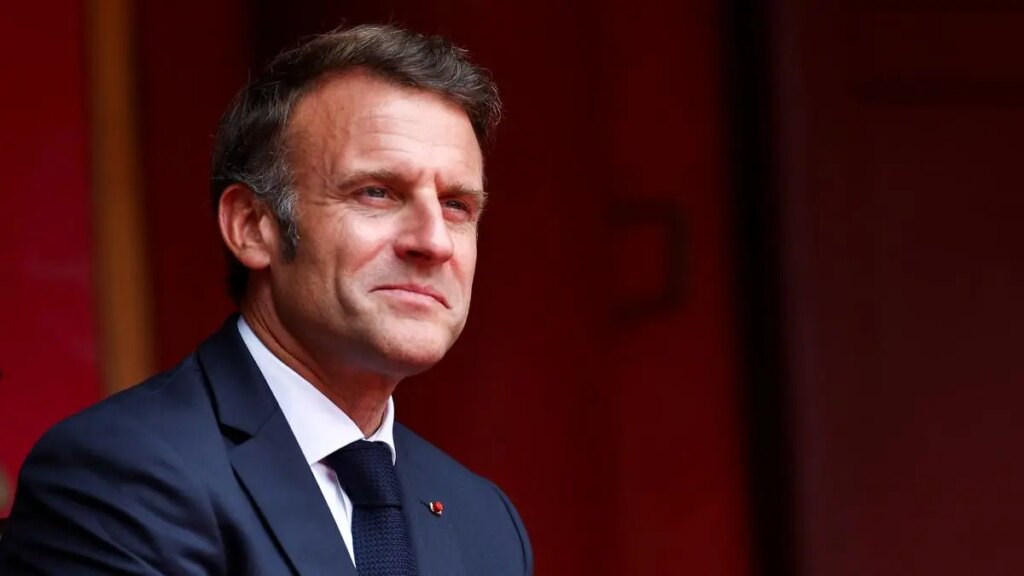French President Emmanuel Macron is spearheading the latest effort by European leaders to woo Southeast Asian nations worried about becoming collateral damage in the US trade war and security disputes between Washington and Beijing.
Macron already announced €9 billion ($10.3 billion) in deals and promises of closer defence cooperation on a visit to Vietnam on Monday. He’ll aim to build on that momentum later this week in Indonesia and then in Singapore, where he’s giving a keynote address to the annual Shangri-La Dialogue security forum on Friday.
The region is receptive: Southeast Asia is caught between the threat of dramatically higher US tariffs on one hand, and a surge of cheaper Chinese goods that are undercutting their economies on the other. But Macron is also confronting the reality that the region won’t shake its dependence on either of the world’s superpowers anytime soon.
“For Southeast Asia, Europe provides valuable ballast in an increasingly polarised world,” said Shahriman Lockman, an analyst at the Institute of Strategic and International Studies in Malaysia. But Europe’s capabilities are limited, he added: “Europe can only complement, not substitute, the United States.”
Macron’s tour comes as the European Union is rushing to diversify supply chains and access new markets as a central element of its response to US President Donald Trump’s levies.
The EU has moved forward on trade talks with Malaysia, Indonesia and Thailand in recent months. It aims to revive negotiations on commercial and economic security with Australia while also seeking a sweeping accord by the end of the year with India.
The renewed engagement with the region began during the Biden administration, which encouraged European nations to deepen links in Southeast Asia in an effort to both broaden support for Ukraine and build on its own alliances in the region. But it’s accelerated now, in part due to Trump’s tariffs and his questioning of many historic military alliances.
“Washington is now once again pushing these countries together — but this time it’s because uncertainty around US trade policy and security guarantees has America’s partners seeking stronger ties elsewhere in the world,” according to Jennifer Welch, Chief Geoeconomics Analyst at Bloomberg Economics.
Asia pivot
The continuing war in Ukraine will be a key focus for Macron, who officials said will argue that the conflict Russia began has global consequences that reach deep into Asia — to include both China and North Korea’s increasing support for Moscow. That’s a development that has alarmed officials in Seoul, Tokyo and other Asian capitals.
In consolidating its Asia pivot, the EU is exploring closer cooperation with the Comprehensive and Progressive Agreement for Trans-Pacific Partnership, a 12-nation trade bloc that stretches from New Zealand to Canada. That move would be especially welcomed in Southeast Asia, said a diplomat in the region. Trump pulled out of the partnership’s previous iteration in 2017.
Behind the scenes, EU officials have also been comparing notes with counterparts from South Korea and Japan over Trump’s trade talks with China, according to people familiar with those discussions.
Several Asian countries are looking to see how the EU handles its trade negotiations with the Trump administration as they seek a blueprint for their own talks, Supavud Saicheua, a member of Thai Prime Minister Paetongtarn Shinawatra’s economic advisory panel, said in an interview.
What they’ve seen so far may not be reassuring, with Trump saying last week that negotiations with the EU weren’t going anywhere and threatening to impose a 50% tariff on the bloc starting in June. He subsequently announced an extension until July 9 to work out a deal.
Economic security
With most Southeast Asian nations having the US and China as their biggest trading partners, their room for maneuver in the short term is limited, said Gregory Poling, director and senior fellow at the Center for Strategic and International Studies.
“The countries most reliant on the US are scrambling to strike deals because they must,” Poling said.
In fact, some Southeast Asian nations have long seen Europe as irrelevant when it comes to the region’s broader economic security architecture, according to two officials who asked not to be identified discussing internal deliberations. That perception is a hindrance the bloc is still working to overcome, they added.
In addition, many Asian countries’ reliance on the US for security – a need Europe would struggle to fill — has made them reluctant to adopt a tougher negotiating stance toward the Trump administration or to speak out more vocally against his tariffs, several European officials said.
Back in Washington, Trump has distanced himself from some historic US security allies, including NATO, but so far the administration has largely signaled support for its partners in Asia, something that hasn’t been lost on the region, analysts say.
For Macron, power projection in the Indo-Pacific is a pillar of his geopolitical strategy, which includes military drills with allies such as Japan, Malaysia and India, a top buyer of French military equipment. As home to several overseas territories and some 1.6 million French citizens, Paris has a direct stake and deep historical links in the broader Indo-Pacific.
But while Europe will welcome new business deals, there is an ongoing debate in the EU about how far the bloc should go given the security challenges, particularly the war in Ukraine, it has to deal with closer to home.
“The Europeans occasionally send ships to the South China Sea, but these are largely symbolic gestures in support for international law, not credible deterrence,” said Lockman.
More stories like this are available on bloomberg.com
Published on May 27, 2025

